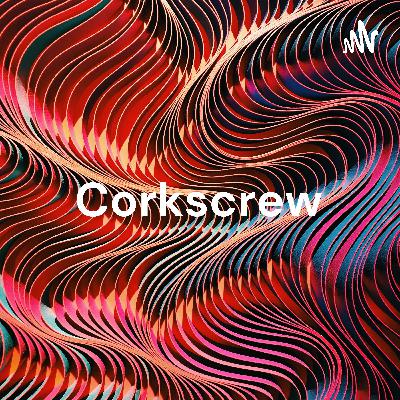Part 1: What career? Presentations from practice-based/artistic research PhDs
Description
This week's episode is the first of two featuring audio recorded from the CHASE-funded Corkscrew Workshop held in June for practice-based PhD students. The host, Dr Sophie Hope, kicks off by welcoming the participants and provides a short outline of her own doctoral journey. There follow four more short presentations
https://www.bbk.ac.uk/our-staff/profile/8004718/sophie-hope
https://sophiehope.org.uk/
Reflecting on her career, Sophie admits how privilege has informed her decisions without realizing quite how much at the time.
Dr Josephine Coleman
https://www.brunel.ac.uk/people/josephine-coleman
Jo outlines her doctoral research on community radio and explains that the reason for doing the PhD was primarily because she wanted to teach at a University level. She describes how the process has inspired her teaching practice, bringing reflexivity to her work.
Dr Rachel Hann
https://www.northumbria.ac.uk/about-us/our-staff/h/rachel-hann/
(See also episode 2 in this series)
Rachel discusses the issue of how universities can frame (or struggle to frame) what we are doing through practice research, because the tendency is to be concerned with how much money (and how many students) we are bringing in. And she raises the challenge we face when asked to account for the impacts of our research; since outputs relating to practice are harder to pin down. Rachel is now accustomed to showing/arguing process. She always puts a Research Question at the start of a project to drive her intellectual investigation. Her practice gives the signposts for how she approaches answering that question. She is currently exploring how we stage trans and non-binary feeling and what that means in a critical context at the moment.
Writer Dr Olumide Popoola
https://www.olumidepopoola.com/
Olumide shares her experience of doing a PhD in Creative Writing at University of East London. She had already been teaching, but finds she has done less at Universities since completing. Doing the doctorate, she found that she spent much more time defending her process rather than on the creative writing itself. Having said that, she learned and developed so much, having since published her creative work as a novel, When We Speak Of Nothing. She has found that having a doctorate definitely opens doors when applying for funding. She is the initiator and leader of the Arts Council-funded mentoring scheme for emerging LGBTQ+ writers, The Future is Back.
Contemporary folk artist Dr Lucy Wright
https://www.artistic-researcher.co.uk/
(See also episode 3 in this series)
Lucy talks about her approach to artistic practice and folk art generally as reclaiming, making do, and thinking for ourselves. She sees the importance of encouraging people to do things on their own terms. Her PhD helped expand her thinking and granted her a creative freedom that ended as soon as she completed. Needing to find full-time work, she went on to work in a series of short-term academic posts, supporting other people’s research in a range of different disciplines. She is now engaged in social art projects, which involve showcasing other people’s work as well as doing her own art and commissions. The important thing, Lucy says, is to find ways to make our practice sustainable.






